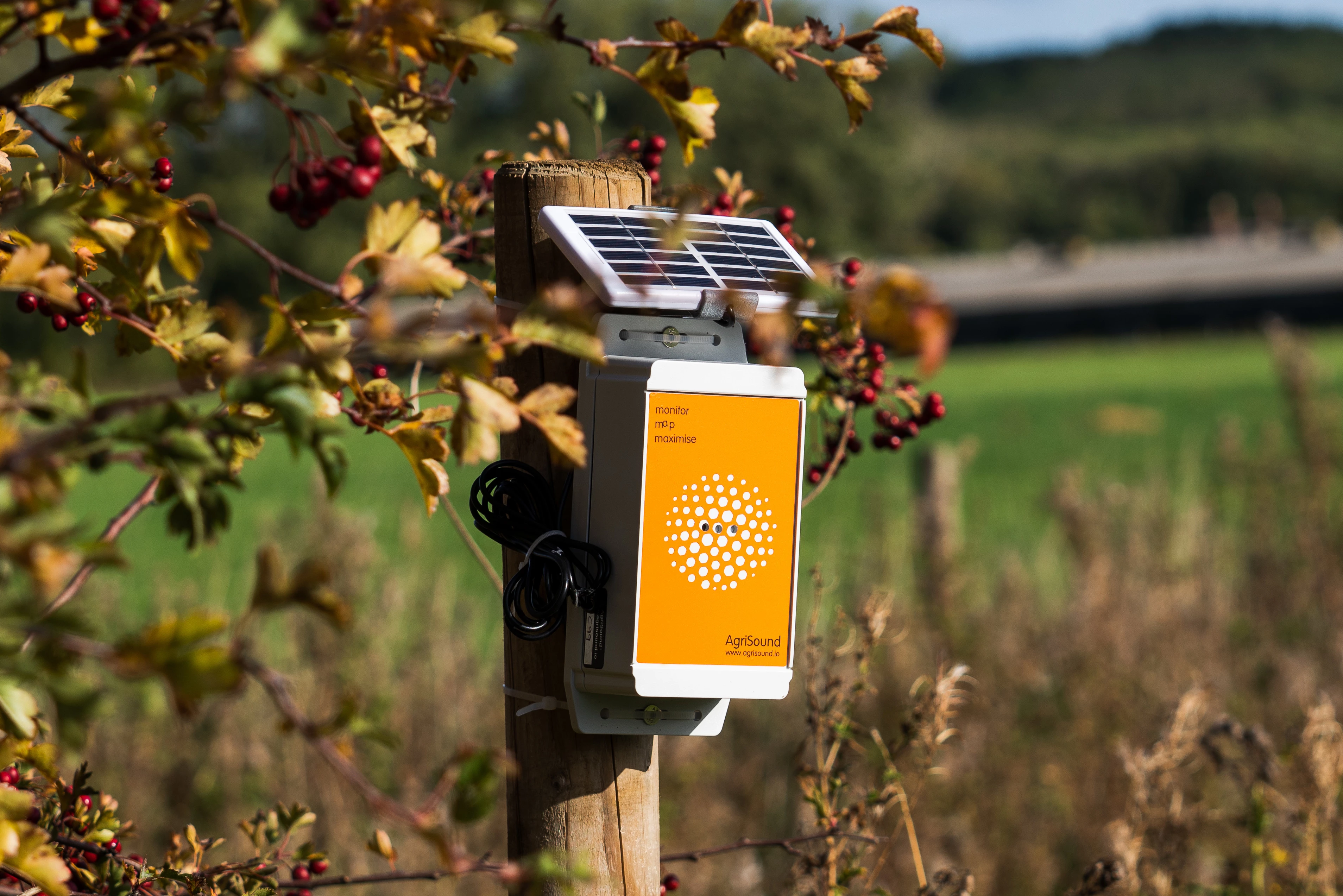
York based agritech startup supports major food manufacturer’s Net Zero ambitions
Cranswick plc has become one of the first businesses to install insect listening equipment on its outdoor pig farms in Norfolk and Lincolnshire.
This specialist equipment has been developed by York based pollination and insect biodiversity innovators, AgriSound, and will allow Cranswick to monitor insect activity and track pollination events on their farms, throughout the year, providing vital information on the biodiversity of the area and how pig farming can play its part.
Casey Woodward, founder and CEO of Agrisound, commented: “Our Polly bio-acoustic devices are installed in key areas around the farms. Operating in a similar way to how a smart speaker functions, our devices are equipped with a microphone and environmental sensors, measuring temperature, light and humidity.
“Each one is completely solar powered. Polly listens 24/7 for the sounds of insects and uses advanced sound-analysis to translate the data into activity scores. These are automatically sent back to the cloud, where the farmer can view them via an app or web application.”
“This information, available in real time, can be used to target the introduction of pollinator-protection measures to the areas of greatest need, and also determine actions such as the planting of wildflowers or creating new habitats.
“Over the first two months of use, our Polly’s have detected an estimated abundance level of 48,800 pollinators over Cranswick’s farms, which is very encouraging.”
Ash Gilman, director of agricultural strategy at Cranswick, added: “We are pleased to be working with AgriSound and getting an in-depth understanding of activity on our farms. Pollinators not only form a central part of our ecosystem but are fundamental to the food cycle.
“The objective is to demonstrate how pigs can play a positive role within the rotation, benefitting soil health and carbon sequestration, as well as presenting new habitats to encourage and increase biodiversity. The insights from the first 2 months are very positive and we’re looking forward to learning more as we continue to monitor the devices.”
Monitoring biodiversity on farms is just one of the sustainability initiatives undertaken by Cranswick, which launched its sustainability strategy ‘Second Nature’ in 2018, to deliver a vision to become the world’s most sustainable meat business and drive positive change in the industry.
As part of this strategy, it is aiming for its owned farms to be carbon neutral by 2030, scaling up natural carbon sequestration strategies in agricultural operations, regenerative agriculture and soil health programmes. This supports Cranswicks overarching target of becoming a Net Zero business by 2040.
By Matthew Neville – Senior Correspondent, Bdaily



 How advancements in technology are shaping the future of the economy in North East England
How advancements in technology are shaping the future of the economy in North East England
 South Yorkshire Craftsmanship and Innovation: A Tale of Heritage and Growth
South Yorkshire Craftsmanship and Innovation: A Tale of Heritage and Growth
 Demystifying Degree Apprenticeships
Demystifying Degree Apprenticeships
 Industry-focused apprenticeships pave the way for a bright future in science manufacturing
Industry-focused apprenticeships pave the way for a bright future in science manufacturing
 What’s the best hosting plan for a business website?
What’s the best hosting plan for a business website?